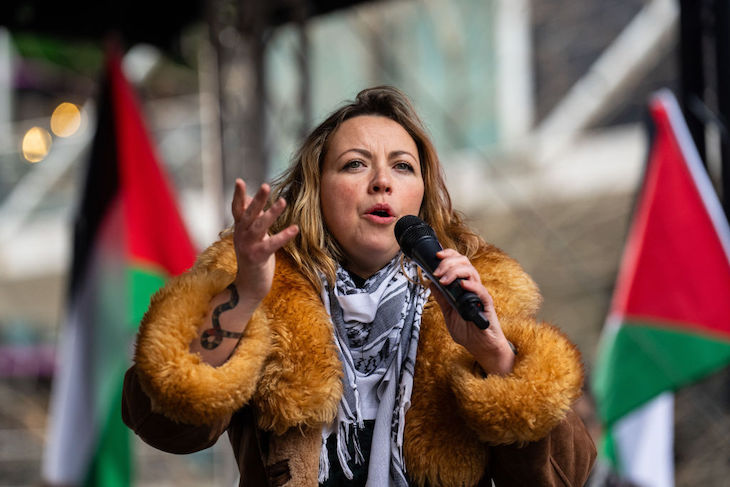Touring the country’s literary festivals as an author isn’t glamorous. Like travelling salesmen, we get into our cars or board trains to head to destinations that are often hundreds of miles away to talk about our books for an hour or so. The audience – if the talk has gone well – will then hopefully buy some copies. It is not an existence to be envious of, but it is an essential part of writing: without such festivals, authors like me would lack any kind of name or face recognition amongst our readership. It is likely that any subsequent books we write would sell in smaller and smaller numbers. Yet this essential part of the publishing infrastructure is now under attack from activists. There’s a danger the whole edifice could come crashing down.
Comedian Nish Kumar and Labour’s Dawn Butler were among those due to appear at Hay who decided to boycott the festival
The Hay and Edinburgh literary festivals – the two largest and most prominent such events in Britain – have been obliged to sever their financial links with their main sponsor, the asset management company Baillie Gifford. They did so after being caught up in a perfect storm of discontent revolving around Baillie Gifford’s perceived links to fossil fuel and Israel. Singer Charlotte Church, comedian Nish Kumar and Labour MP Dawn Butler were among those due to appear at Hay who decided to boycott the festival because of Baillie Gifford’s ties. As a result, Hay ‘suspended’ the sponsorship.
The row follows a similar bust-up last year, during which activists targeted Edinburgh’s festival. Dozens of big name authors, including Zadie Smith and Gary Younge, signed an open letter calling for Edinburgh to cut ties with the firm over climate concerns. Greta Thunberg also cancelled a planned appearance at the 2023 event. In the run-up to this year’s event, Edinburgh has jumped before it was pushed by binning Baillie Gifford. Jenny Niven, the director of the Edinburgh book festival, made it clear that this was not through personal choice: ‘Enormous peer pressure’ was, she said, to blame. She said that: ‘We were already beginning to see people who don’t particularly align themselves with the campaign but fear that this is not good publicity for their books to be involved with this.’
This decision is a disaster for authors. The activist group Fossil Free Books – and the likes of Dawn Butler and Charlotte Church – will no doubt celebrate this as a victory. But the truth is that festivals need the money of big firms like Baillie Gifford to remain viable. Without these funds, they will struggle to survive. And good luck finding a suitable deep-pocketed replacement: any business will surely think twice about sponsoring a book festival if it could result in the type of publicity Baillie Gifford has received in recent months.
Other book festivals are panicking. The Cheltenham literary festival, seeing which way the wind is blowing, has pre-emptively cut ties with Baillie Gifford after threats of a boycott. The organisers of the festival released a justifiably irritated statement in which they declared that the money had been used for ‘positive ends…increasing access to, and representation within, the very public debates that can affect lasting change. We would not have chosen to find ourselves in this position. We believe that change is only possible if we as a culture make it together.’ They concluded that ‘like all literature festivals we operate within a straitened financial context.’
If it were a case of these festivals finding morally impeccable sponsors – or, indeed, some of the millionaire authors and celebrities putting their money where their principles are and funding them themselves – then this would be an irritation, but little more. Yet at a time when all but a small number of writers are facing financial hardship, this additional pressure being heaped onto the literary ecosystem feels like the selfish and petulant expression of virtue signalling by a privileged few. Big name writers don’t need festivals; one high-profile event at, say, the Royal Festival Hall will sell out without difficulty. For the rest of us, who are grateful for the £150 or so we get in fees at these events – to say nothing of the opportunity to flog some books and meet our readers – it is yet another blow to the increasingly fragile and beleaguered world of publishing.
Advances are already at a fraction of what they were a couple of decades ago. Soon, being an author will become an occupation that can only be pursued by the wealthy. Book festivals are one of the few levellers in this regard: they are a chance for anyone to impress and charm potential readers. But their future looks increasingly in doubt.






Comments